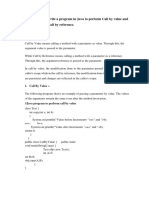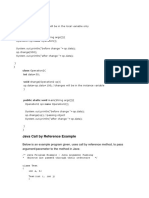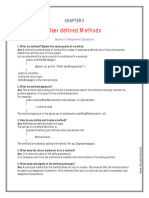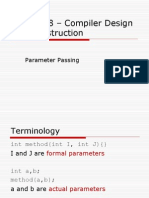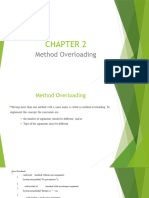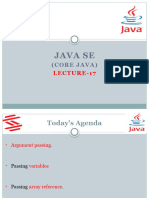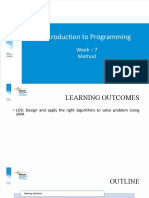0% found this document useful (0 votes)
14 views8 pagesJava Parameter Passing
Java primarily uses Call by Value for parameter passing, where a copy of the actual parameter is sent to methods, preventing changes from affecting the original variable. Call by Reference, Call by Value-Result, and Call by Name are not natively supported in Java, though object state modifications can occur. Key takeaways include that while Java passes object references by value, true reassignments and certain other mechanisms are not available.
Uploaded by
abdulmaleekajeigbeCopyright
© © All Rights Reserved
We take content rights seriously. If you suspect this is your content, claim it here.
Available Formats
Download as PPTX, PDF, TXT or read online on Scribd
0% found this document useful (0 votes)
14 views8 pagesJava Parameter Passing
Java primarily uses Call by Value for parameter passing, where a copy of the actual parameter is sent to methods, preventing changes from affecting the original variable. Call by Reference, Call by Value-Result, and Call by Name are not natively supported in Java, though object state modifications can occur. Key takeaways include that while Java passes object references by value, true reassignments and certain other mechanisms are not available.
Uploaded by
abdulmaleekajeigbeCopyright
© © All Rights Reserved
We take content rights seriously. If you suspect this is your content, claim it here.
Available Formats
Download as PPTX, PDF, TXT or read online on Scribd
/ 8


